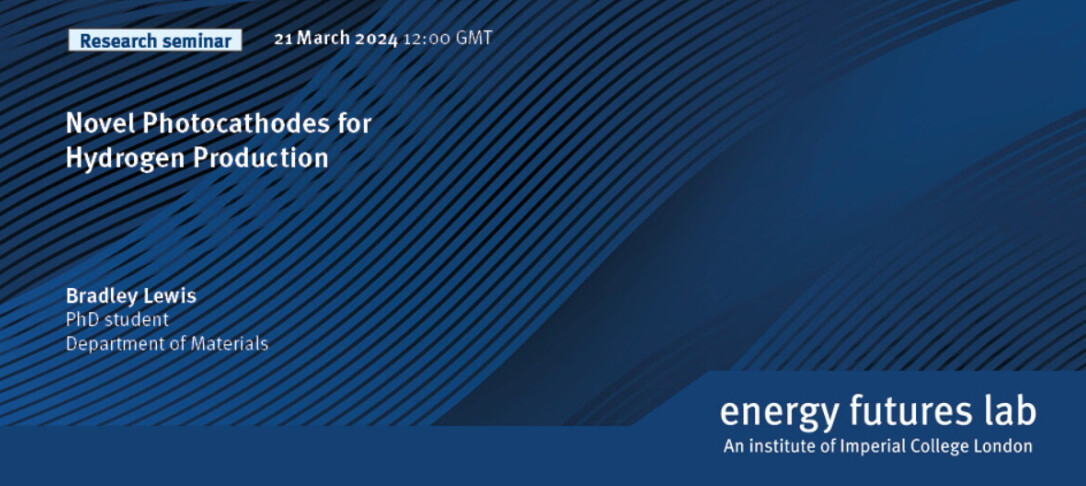
Novel Photocathodes for Hydrogen Production
Hydrogen has been highlighted as a fuel for the future. At present, around 96% of the world’s hydrogen is produced using fossil fuels such as coal, oil, and natural gas. Harnessing the sun’s energy to generate green hydrogen through solar-driven water splitting could yield a zero-carbon emission process from upstream fuel production to downstream consumption. Photoelectrochemistry (PEC) can provide a platform for the photocatalytic dissociation of water molecules into hydrogen and oxygen molecules through redox half-reactions. In this context, ternary oxides have been identified as promising novel materials for PEC because of their (1) bandgap tuneability, (2) earth abundance, (3) high photovoltages, and (4) stability in air and water. In this work, PrFeO3 is being investigated for its application as a photocathode of PEC devices. Solutions of Pr and Fe have been developed with sacrificial porogens to prepare thin films by spin coating on transparent conductive oxides. Interestingly, we show that doping with calcium drastically enhances achieved photocurrents. Multiple characterisation techniques such as XPS, UV-Vis, SEM, and XRD are used to analyse chemical, electronic, and structural property changes as experimental conditions are changed, to relate approaches to the final performance and guide a rational design.
Biography:
Bradley Lewis achieved his BSc in Chemistry from the University of Liverpool and then went on to study an MRes in Chemistry and Chemical Engineering at Imperial College London. His PhD research focus, under the supervision of Dr Salvador Eslava, is based on photoelectrochemical water splitting with the aim to generate green hydrogen, as a fuel source, at the photocathode.
About Energy Futures Lab
Energy Futures Lab is one of seven Global Institutes at Imperial College London. The institute was established to address global energy challenges by identifying and leading new opportunities to serve industry, government and society at large through high quality research, evidence and advocacy for positive change. The institute aims to promote energy innovation and advance systemic solutions for a sustainable energy future by bringing together the science, engineering and policy expertise at Imperial and fostering collaboration with a wide variety of external partners.